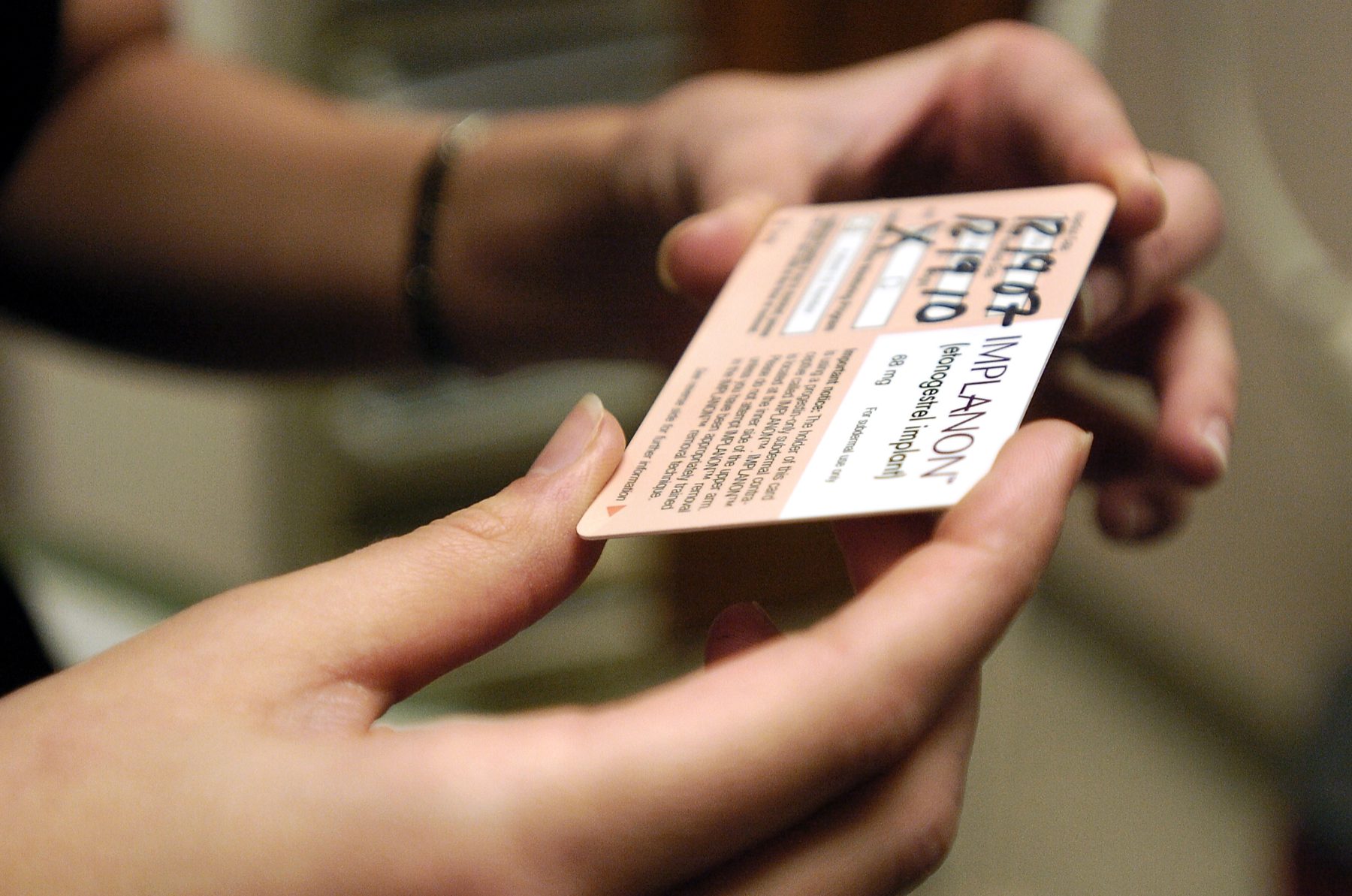Inactive service members, veterans, military spouses and dependents are subject to copays for contraceptive care — care that is fully covered under many employer-sponsored and marketplace health plans outside of the military. Democrats in Congress want to change that.
More than 140 Democrats in Congress signed a letter Thursday urging the secretary of defense to eliminate additional costs for military families who currently have “fewer rights than those they serve to protect.”
Rep. Jackie Speier of California, who for years has been working to end cost barriers to contraceptive care, said this is a “simple issue of fairness.”
“Military families that are often living on tight budgets shouldn’t have to use their hard-earned money for contraceptive copays when civilians don’t have to carry that financial burden,” said Speier, co-chair of the Democratic Women’s Caucus and chair of the House Armed Services Military Personnel Subcommittee.
Full coverage, without copays, remains in place for active service members.
The Department of Defense did not respond to a request for comment.
The TRICARE program, which provides health benefits to U.S. troops, retirees and their families around the world, covered nearly 1.6 million women of reproductive age in 2019 — including more than 700,000 military spouses and dependents of reproductive age. Additionally, thousands of transgender dependents of service members are covered by TRICARE. The legislative text notes that contraception is critical to “all individuals with the capacity for pregnancy, including cisgender women, transgender men, non-binary individuals, those who identify with a different gender and others.”
The Affordable Care Act (ACA) guarantees all FDA-approved contraceptive methods, counseling and related services — but these protections do not apply to TRICARE. A spokesperson for TRICARE had not issued a response by publication time.
Rep. Lois Frankel, a Florida Democrat who also signed the letter, said in a statement that current insurance law created a disparity that was unfair to military dependents.
“The Affordable Care Act eliminated co-pays for contraceptive care for individuals with employer-sponsored and marketplace plans, allowing access to birth control to become more affordable and accessible,” Frankel said. “Our men and women in uniform—and their families—sacrifice so much for our country, ensuring they have access to quality health care, including the birth control they need, should not be debatable!”
Lawmakers have repeatedly tried to ensure that these service members and their families are not subject to copays for contraception. Most recently, early versions of the 2022 National Defense Authorization Act (NDAA) included a contraceptive access provision, which was later removed following Republican pushback.
Speier, who said through a spokesperson that she has tried to include this provision in the NDAA for several years only to have it removed in last-minute conferences, criticized the opponents’ “Stone-Age mentality” and emphasized that “birth control is health care and access to it is every person’s right.”
The provision, however, still has bipartisan support in both the House and Senate, and the Department of Defense has also voiced support for “this legislative relief,” according to Thursday’s letter. So with the window closed this year for inclusion in the NDAA, legislators are taking a different approach: urging the Department of Defense to declare contraceptive services as “preventative medical care,” which would allow Secretary Lloyd Austin to waive all copays.
The letter cited defense officials as saying that “removing these financial barriers to contraception may mean more freedom of choice with respect to family planning for our beneficiaries,” according to the letter. The Defense Department already supports, through regulations, providing victims of sexual assault in the military with emergency contraception upon request.
“Access to contraception and the ability to determine if and when to have children are inextricably tied to one’s health and wellbeing, equality, financial security, and control over one’s life,” the legislators wrote. “Studies have shown that the costs related to contraception, even when small, lead some women to forgo it completely, to choose less effective methods, or to use it inconsistently.”
The NDAA, an annual bill that provides guidance on how military funding should be spent, was passed in December with a 89-10 vote in the Senate. Though the contraceptive care provision for military retirees and dependents was stripped from the final $770 billion legislation, women in active duty gained other protections.
Uniformed service members received a 2.7 percent increase in pay, and the “pink tax” on military uniforms was eliminated. Women in the military also saw an expansion to child care access and changes to the military justice system. Now, an independent special prosecutor will handle specific crimes such as rape, sexual assault, murder and domestic violence — though some legislators argue that more needs to be done to destigmatize victims and create a truly independent process.
The Military Moms Matter Act, championed by Rep. Chrissy Houlahan of Pennsylvania, was incorporated into the annual defense bill. Members of the military who have given birth now have more time to complete their physical fitness test postpartum. They are also guaranteed postpartum care, including mental health assessments, pelvic health treatment and other considerations for physical therapy. The provision also extends parental leave to 12 weeks for both primary and secondary caregivers.
The provision was a direct result of talking to service members, Houlahan said.
“I vividly remember sitting with Pennsylvania National Guard members of the 28th Infantry Division last spring, asking what could be done to help them balance the demands of serving their country and their civilian lives and careers,” Houlahan, a former Captain in the Air Force, said in a statement.







